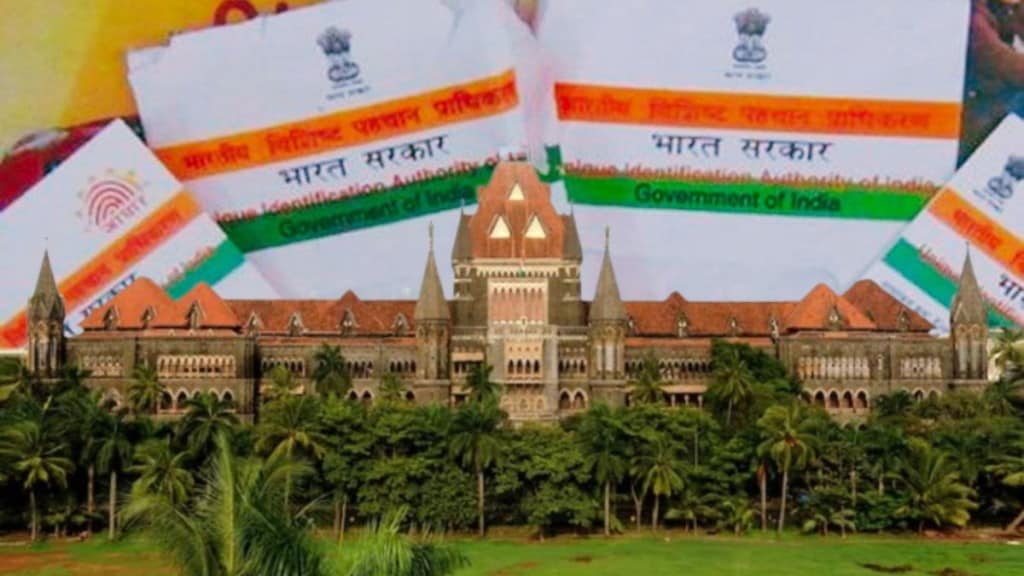The Bombay High Court on Tuesday refused the bail plea of an alleged Bangladeshi man who sought the relief on the grounds that he was possessing Aadhaar card, PAN card and voter-ID card. The HC stated that merely having these documents does not make someone the citizen of India, and the citizenship continues to be governed by the Citizenship Act, 1955, a report said.
This comes on the very day when the Supreme Court, in a similar observation, said that producing the Aadhaar card does not make one the citizen of India. The court was hearing a batch of petitions against the ongoing Special Intensive Revision (SIR) of voter roll in poll-bound Bihar. The top court backed Election Commission’s argument that Aadhaar card does not ensure citizenship to anyone.
In the present case, the Bombay HC denied the bail plea of the petitioner, who was booked by the Thane Police last year. The grounds were that he was a Bangladeshi national and that he misled the Indian authorities to obtain Aadhaar Card, PAN Card, a Voter ID Card, income tax records, gas and electricity connections, according to a report in Live Law.
‘These documents are meant for identification’
A single-judge of the Bombay HC noted that till date, the Citizenship Act, which was brought into force by the Parliament in 1955 is the main and the controlling law for deciding the nationality of Indians.
“This is the statute that lays down who can be a citizen, how citizenship can be acquired, and in what situations it can be lost. Merely having documents such as an Aadhaar Card, PAN Card, or Voter ID does not, by itself, make someone a citizen of India. These documents are meant for identification or availing services, but they do not override the basic legal requirements of citizenship as prescribed in the Act…” the court said, quoted Live Law.
“Merely relying on the existence of certain identity documents such as Aadhaar, PAN, or Voter ID, without verification of the process through which these were obtained, cannot be treated as sufficient proof of lawful citizenship at this stage, particularly when the very authenticity of such documents is under investigation,” the judge added.
‘The allegations in this case are not small’
The HC judge further stated that there’s a clear distinction between lawful citizens and illegal migrants. “Persons falling into the category of illegal migrants are barred from obtaining citizenship through most of the legal routes mentioned in the Act,” he added.
The court said the prosecution heavily produced digital evidence ie. photos of two birth certificates from the accused’s WhatsApp chats – one of his own and the other of his mother – both showing the two as Bangladeshi nationals.
The judge refused to accept the argument of the accused that an unknown person sent him these ‘unverified’ documents. “The real source of these documents (birth certificates), whether they are genuine or fake, and whether they actually relate to the applicant, can only be found out after proper verification by the concerned authorities,” the judge said.
The court observed that the cases of false claims of citizenship often require time as multiple agencies work on it and sometimes, even foreign government departments are required to be involved.
However, the judge said, the particular case and the allegations against the accused were not small as it was not just about staying in India without permission or overstaying a visa but about making and using fake and forged identity documents like Aadhaar Card, PAN Card, and Voter ID.
“The fact that he was allegedly able to get official documents through fraud shows that he has the ability to misuse the system and create a false identity again if given the chance. In these circumstances, if the applicant is given bail now, there is a real risk that he may hide, get another false identity using forged documents, or leave the area under the Court’s control altogether. There is also a real chance that he may destroy evidence or put pressure on witnesses, especially since the verification of the documents in question is still not complete,” the court stated, as per Live Law.
The judge observed that the fear expressed by the prosecution is not an empty or imaginary fear, and hence the petitioner cannot be granted the bail.


